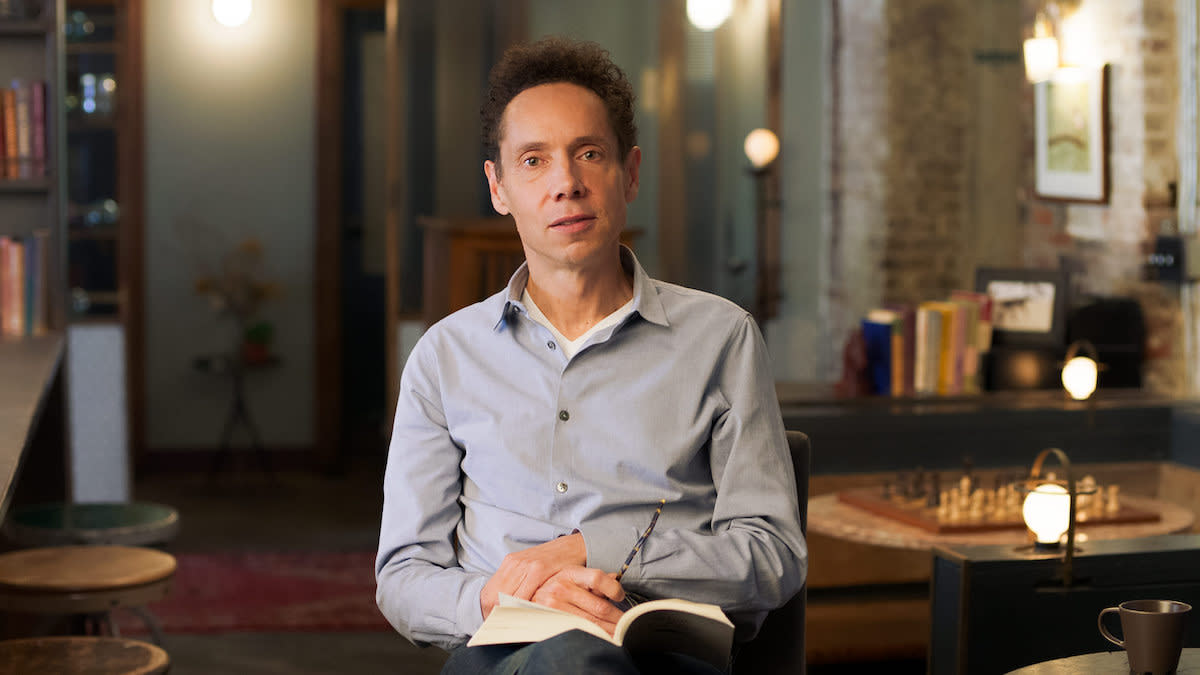What Makes a Great Interview? Malcolm Gladwell’s 7 Tips For Interviewing Journalistic Sources
Written by MasterClass
Last updated: Aug 19, 2021 • 4 min read
The aim of a journalistic interview is to obtain exclusive information and riveting quotes from the person you are interviewing. Learn how to prepare for an interview with these tips from bestselling author Malcolm Gladwell.
Learn From the Best
What Is a Source in Journalism?
In journalism, a source is any person, publication or document that gives you information for your story. Reading information from a written source is fairly straightforward, but obtaining it from a person can be a more delicate endeavor. Often, journalists work closely with their source, building trust over time and expanding their network of contacts to find stories.
Obtaining information from a person almost always requires good interview techniques. Gladwell shares his process below.
How to Prepare for an Interview
Preparing for a journalistic interview is different from preparing to speak to someone in any other context, such as a job interview. Here are a few basic things you should consider before you sit down to interview someone for a story:
- 1. Choose the location. If it’s up to you to choose the location, pick somewhere where you can both sit comfortably and it won’t be too loud to interfere with your recording. In-person interviews are best, but if it’s not going to be possible to meet face to face, opt for a phone interview.
- 2. Test your recording device. Whether you are using your phone or a separate recording device, you’ll want to make sure you’ve tested it before the interview. Always record your interviews because it will allow you to focus more on the conversation while collecting direct quotes—but make sure you ask permission before hitting record.
- 3. Do as much research as possible. Read as much as you can about your subject so that you can ask the right interview questions. You can also use your knowledge to build rapport with the person, as they will appreciate you showing interest and consideration.
3 Reasons Interviews Are Important
A great interview can be the difference between whether or not you can ultimately produce a compelling story. Interviews allow you to:
- Extract the best possible information from your source.
- Get good quotes.
- Incorporate a point of view other than your own.
For news stories, you conduct interviews to gain information about a situation or person in the news; you hope to get at least one quote that is attention-grabbing and elucidates the main point of your story. If you’re following the inverted pyramid style of news reporting, that means you use these quotes higher up in your story.
But those aren’t the only successful interviews, especially when it comes to feature writing. The way Gladwell interviews his subjects, for example, is different from the kinds of interlocutions you see on 60 Minutes. Gladwell is less interested in the things people do; he is more focused on how their minds work.
7 Tips for Interviewing Sources with Malcolm Gladwell
Below are seven interview tips from Gladwell to help you to get your subjects to open up and to ultimately create good journalism that will hold your readers’ attention.
- 1. Find your subject’s authentic self. The goal of your interview isn’t to trap your subject or get them to say something they shouldn’t. It’s to wholly understand who they are. Good interviews are about finding the right series of questions and prompts to draw out the strongest and best qualities in a person.
- 2. Show people why they’re interesting. The person you’re talking to doesn’t know why they’re interesting any more than you do. (At least not at first.) Your job isn’t to supply the idea. Your job is to listen for ideas and appreciate the way your interviewee is articulating their own thoughts. It’s about alerting people to those parts of their lives that may seem banal to them—but in fact, are not.
- 3. Make your subject slow down. To interview well, slow your subject down. Slow yourself down, too. Let yourself be naive. Be humble. You represent your reader in this exchange; if you have a question, there’s a very good chance your reader will have the same question. Your own instincts are your guide. If you don’t understand something, stop your subject and make them explain it to you.
- 4. Insert the word “wait.” Gladwell uses the word “wait” constantly in his interviews to get someone to slow down. That’s good for you, who needs to understand what the speaker is saying, and it’s good for the speaker, who may not have realized they’ve just said something interesting or important.
- 5. Make interviews short and unscripted. Write a few open-ended questions down before the interview and during it, as they occur to you, but don’t try to script your interview before it begins. When you stick to a pre-written list of questions, you’re assuming you know what you want or what the person is going to say. The most interesting thing a person can tell you is the unexpected thing.
- 6. Consider taking a break in long interviews. Good, thorough interviews can be exhausting. As a rule, if Gladwell finds himself yawning, he stops the interview and schedules another time to come back and continue in a follow-up conversation. Listening intently for more than two hours is difficult, so let yourself take breaks. Running an interview when you’re tired is a waste of time; you just can’t listen well.
- 7. Write as you go. As you interview, take notes and start writing your story. Just small pieces of it featuring this interview subject. Writing their piece when your conversation with them is fresh will help you stay organized and prevent you from forgetting details that add brightness and depth to your piece.
